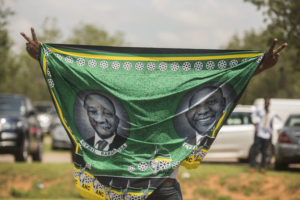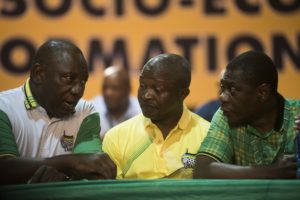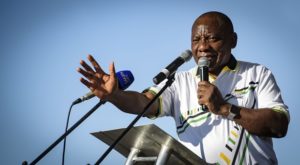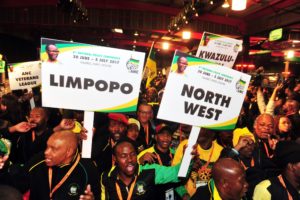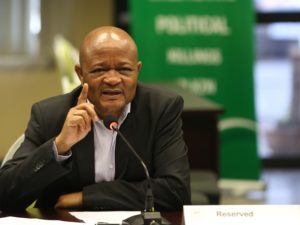Molifi Tshabalala: ANC may be doomed to repeat its mistakes
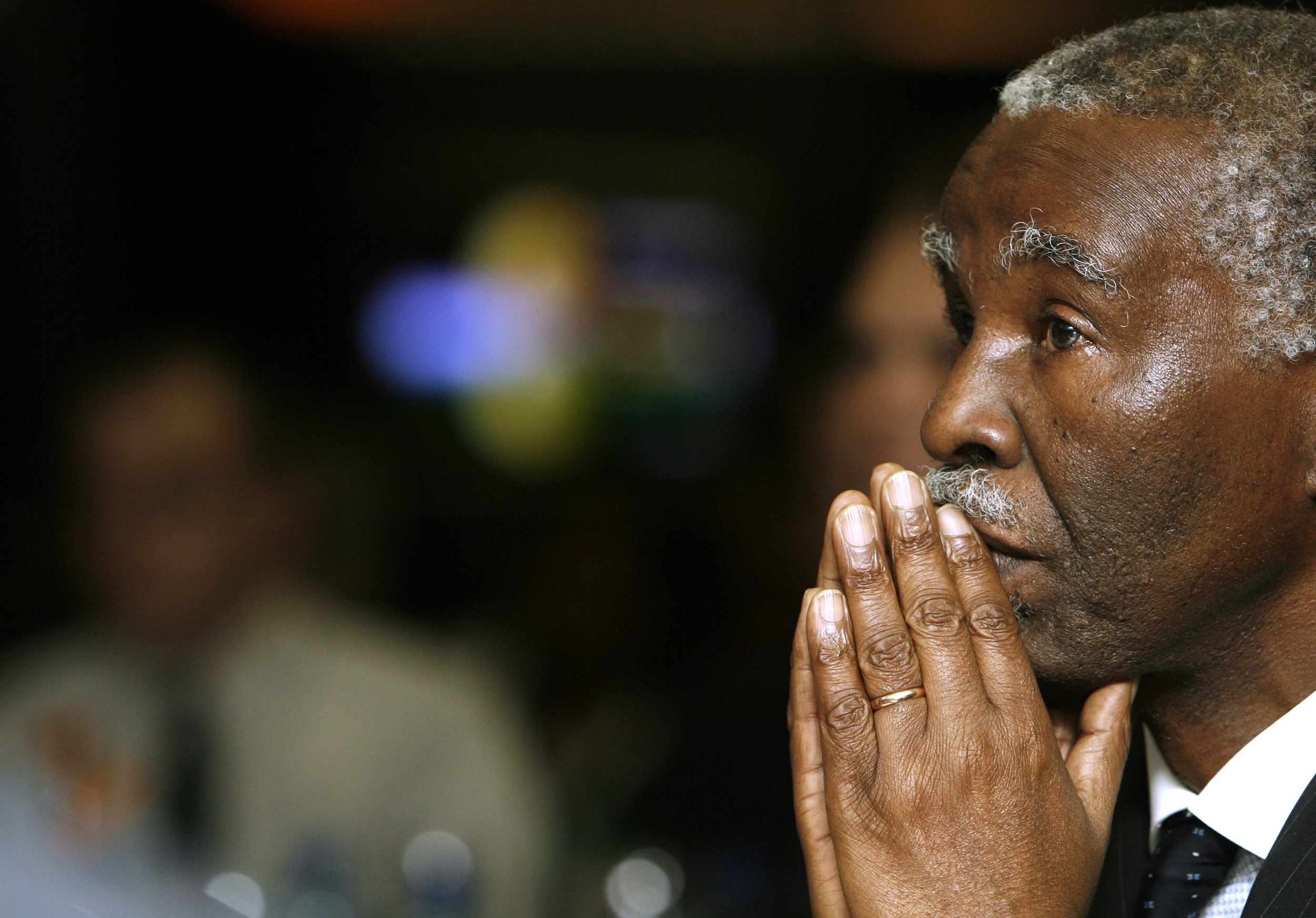
13 March 2008. South Africa. President Thabo Mbeki at the E-Skills Academy in Sandton.
Delivering the fifth annual Onkgopotse Tiro Memorial Lecture a few weeks ago at the University of Limpopo, Kenyan intellectual Patrick Lumumba said that, “when history is written and written properly”, we would apologise to former president Thabo Mbeki.
With eight months to go before finishing his second term in office, Mbeki was recalled by the ANC after the party’s national conference in Polokwane in 2007 in which he lost his ANC presidency to Jacob Zuma.
This opinion piece is not about Mbeki, though, it is about how a correct version of history cannot be kind to ANC secretary-general Gwede Mantashe, who has helped Zuma allow the ANC to descend further into a state of degenerative factionalism, as Ebrahim Harvey points out in an article.
Although Zuma is the main reason behind the ANC’s death, the party dies in the hands of Mantashe, who is a chief administrative officer.
He runs the ANC because Zuma and Deputy President Cyril Ramaphosa spend most of their times in government.
Unlike ANC treasurer-general Zweli Mkhize, ANC Mpumalanga chairperson David Mabuza and ANC national executive committee (NEC) member Lindiwe Sisulu, Mantashe has not come clean about his factional role in the past two ANC national conferences. Especially the most recent one, during which he and Zuma were re-elected as secretary-general and president, respectively.
However, his claim that there will be a crisis if Zuma does not hand over the reins of power to Ramaphosa speaks volumes about his factional allegiance in the run-up to the party’s elective conference in December.
Degenerative factionalism
The ANC constitution does not set out that the deputy president must automatically succeed the president.
In fact, its constitution does not stop Zuma from vying for a third term as ANC president. However, he would be ineligible for a third term as South Africa’s president if the ANC won the 2019 general elections.
In 2007, as Mbeki pointed out in his Oliver Tambo Memorial Lecture a few days ago, the ANC made a resolution that the ANC president must become the president of the country to stymie the two centres of power.
As seen in recent years, secretaries-general are often, if not always, part of the triumphant faction.
For example, KwaZulu-Natal secretary-general Sihle Zikalala comprised part of the triumphant faction at the disputed 2015 provincial¬elective conference, during which he was elected as provincial chairperson of the ANC.
The same happened a few weeks ago with Oscar Mabuyane in the Eastern Cape.
It remains to be seen whether the Ramaphosa faction, which has nominated Mantashe as national chairperson, will emerge triumphant in December.
In Mantashe’s hands, the ANC has given birth to the Congress of the People and EFF offshoots.
The party is again going through labour pains as a third splinter party gestates – and Mantashe is the midwife.
It is for this reason the ANC is not ready for the December conference.
This has nothing to do with logistical reasons or that chairs may fly; it has to do with a deepening degree of degenerative factionalism within the party and, by extension, the Tripartite Alliance.
It would further partition the party to a point of an inevitable split.
It will take more than a change of leadership
The recent litigation related to party conferences in the Eastern Cape, KwaZulu-Natal, North West and the Northern Cape is a telltale sign that the ANC is not ready for the conference.
The ANC is mistaken if it thinks it can address its challenges while merely recycling the same leaders who are inherently part of the problem.
Mkhize, Mabuza and Sisulu have come clean about their factional roles during the past two ANC national conferences.
Yet, ironically, they vie for senior positions on a ticket of pseudo unity.
By electing them into senior positions, the ANC would make the same mistake it made by electing Zuma as president – not once, but twice – while a dark cloud of 783 counts of corruption, fraud, money laundering, racketeering and tax evasion were hanging over his head.
It’s no wonder that corruption has spiralled so out of control. It will take more than a change of leadership for the ANC to come right.
If it wants to regain respect, members must put aside their factional interests and diagnose the challenges the party and the country face, and it must appoint a crop of leaders who will address them.
The phenomenon of state capture – which largely stems from the ANC’s failure to de-monopolise the economy to enable emerging black firms, in particular, to do business with the state – is just a manifestation of clientelism, a second facet of neopatrimonialism.
In this regard, Zuma delegated his constitutional responsibility to appoint ministers to the Guptas and his son Duduzane, thus enabling them to commit administrative corruption.
Neopatrimonialism breeds a poor crop of leaders.
Besides Zuma, who has transmogrified into an anti-Western revolutionary of some sort at the twilight of his second term much to the detriment of the country, Mabuza represents nothing from an ideological viewpoint, not to mention any notable leadership quality he would bring to new ANC senior leadership.
He just brings 736 delegates to the conference to bargain for deputy ANC president.
Contrary to what Zikalala says, unity does not start after the conference; it needs to be constant.
As seen during the past two conferences, a triumphant faction takes all and then alienates the losers and purges them from public institutions.
After December, the new NEC will disband the provincial executive committees (PECs) that were opposed to the triumphant faction.
If Ramaphosa’s faction wins, the NEC will recall Zuma as president, and disband the KwaZulu-Natal PEC and ANC Youth League and replace them with members who are pro-Ramaphosa.
Conversely, if the Nkosazana Dlamini-Zuma faction wins, Zuma will finish his term of office and the NEC will disband the Eastern Cape and Northern Cape PECs.
– Tshabalala is an independent political analyst and author of The Thoughts of an Ordinary Citizen
* This article was first published in City Press on 5 November 2017.
(Photo credit: Gallo)
